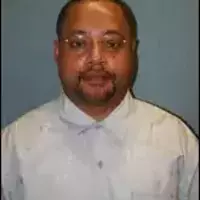Plenary and Panel Sessions
Tuesday Plenary: We're All In This Together: Community science for learning and action
Raj Pandya (American Geophysical Union)
Tuesday, July 16 | 4:30pm-5:45pm | TSU - Barn Auditorium
Science is awesome, especially Earth Science. We've figured out how moving continents create our highest mountain ranges and form our deepest ocean trenches. We know how thunderstorms form, and why some of them spawn tornadoes. We've been able to map the deep history of our planet (including dinosaurs!), discover ice on Mars, and find life in the extreme darkness, temperature and pressure at the bottom of the ocean. Read more...
Thursday Panel Discussion: Grand Challenges in Earth Learning: Perspectives from Historically Black Colleges and Universities
Moderated by Richard D. Schulterbrandt Gragg III (Florida Agricultural and Mechanical University)
Panelists: De'Etra Young (Tennessee State University), Mintesinot Jiru (Coppin State University), and Ambrose Jearld Jr (National Technical Association)
Thursday, July 18 | 4:30pm-5:45pm | TSU - Barn Auditorium
This panel will draw on examples of studies, programs, and policies from Historically Black Colleges and Universities to discuss key strategies and approaches for engaging students, and strengthening diversity in Earth learning. The nation's Historically Black Colleges and Universities comprise only 3 percent of all postsecondary institutions, yet bring centuries of experience successfully serving African American students and their communities. Recently called out as a central part of the nation's STEM infrastructure by the National Academy of Sciences, HBCUs graduate a large percentage of African American students, particularly in the STEM fields, and many who go on to earn STEM doctoral degrees. This session allows participants to learn from this experience and consider its implications for Earth learning in all venues.
We will explore successful practices from across STEM disciplines to organize new integrated approaches to increase diversity and inclusion, and broaden access and participation in Earth Learning. Read more...


